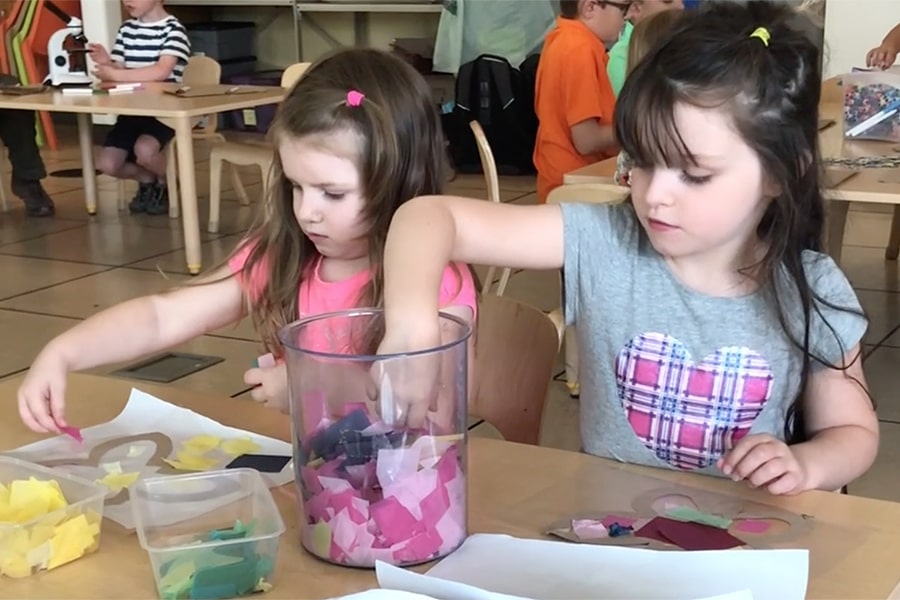
How humans organize information plays an integral role in memory, reasoning and the ability to acquire new knowledge. In the absence of routine education programs, the pandemic is exacerbating the disparities in educational opportunities available for children to develop new skills. While children of higher socioeconomic means often benefit from enrichment programs, these opportunities are unfortunately not available to every child.
New research at Carnegie Mellon University presents the first direct evidence that experiential programs increase a child's ability to lock away new information as well as generalize the knowledge to new situations. These findings suggest that enrichment programs folded into a normal academic curriculum could strengthen knowledge acquisition and increase academic success.
"It is well documented that economic privilege is linked to better academic outcomes," said Catarina Vales, a postdoctoral researcher in CMU's Psychology Department and first author on the study. "Our research suggests that one possible reason may be access to enrichment opportunities where children acquire knowledge that will later become important in school."
The results of the study are available online in the journal Child Development.
Researchers believe that children acquire new knowledge by building bridges to pools of information from previous experiences. Prior research has focused on theoretical modeling with computer simulations to evaluate how learning creates those bridges. In this study, CMU researchers coordinated with educators at the Phipps Conservatory and Botanical Gardens in Pittsburgh to develop two programs — one about bugs and one about plants — to understand how children generalize knowledge gained through summer programs to new situations.
In the study, 29 preschool and kindergarten age children (19 girls, median age = 4.5 years) were enrolled in one of the programs, which included hands-on learning activities. The same programs were run over two consecutive summers and led by the same instructor.
Before and after each program, the children were challenged to use their knowledge to position cards with pictures of bugs and plants onto a grid based on similarity. The goal was to place cards with similar images closer together. For example, the cards for ladybug and a butterfly (both insects) are placed closer together than the cards for a ladybug and a spider (an arachnid). Whereas the card for a butterfly and a pumpkin are placed the farthest apart.
The researchers examined the pre- and post-test results. While the children could differentiate bugs and plants successfully even during the pre-test, their ability to differentiate within the domain that they studied, like bugs, was only evident at post-test. Importantly, children differentiated among items that were not part of the program activities, suggesting that they were able to generalize what they had learned at camp to new bugs or plants.
"This study demonstrates the importance of informal education, particularly in the summer, to prevent the 'summer slide,'" said Sarah L. States, director of Research and Science Education at Phipps Conservatory and Botanical Gardens. "We look forward to exploring other questions in children's cognitive development in the future with the CMU team."
While the study size is small, the researchers believe the results are meaningful. They plan to continue to engage children in future studies to understand what learning activities might be particularly useful to help children succeed.
"It is possible that the variety of activities [during the enrichment program] are mutually redundant and reinforce each other," said Anna Fisher, associate professor of psychology and senior author on the paper. "At this point no one knows the exact recipe, but giving kids opportunities to learn, for example, about biological classification in multiple ways, could better prepare children for future learning."
Vales and Fisher are collaborating with their partners at Phipps Conservatory and Botanical Gardens on implementing activities that can be delivered remotely and free of charge, so that all children can benefit from them.
The project, titled “Experience-driven semantic differentiation: Effects of a naturalistic experience on within-and across-domain differentiation in children,” received funds from The James S. McDonnell Foundation, the National Science Foundation and a CMU Simon Initiative Seed Grant.

